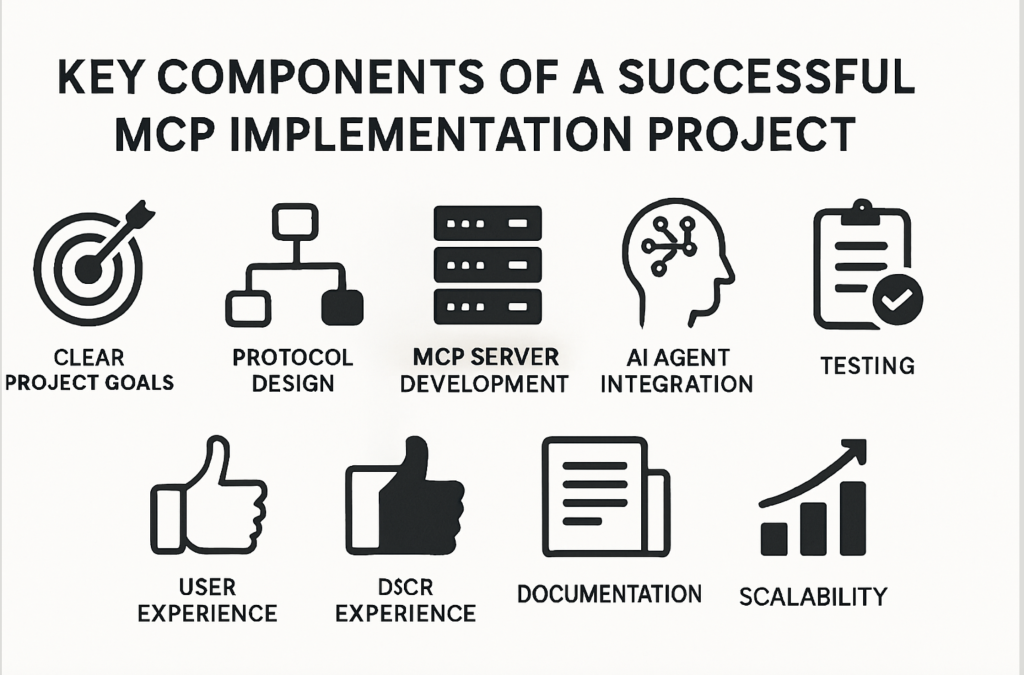
Transforming Intelligent Agent Interactions: Key Elements for Successful MCP Adoption
The Model Context Protocol (MCP) is revolutionizing the way intelligent agents interact with backend services, applications, and data. However, the success of an MCP implementation goes beyond merely writing protocol-compliant code. A systematic approach to adoption must encompass various factors including architecture, security, user experience, and operational rigor.
Essential Components for Successful MCP Implementation
To ensure that MCP projects deliver value and resilience in production environments, organizations should focus on the following key components:
- Clear Project Goals, Use Cases, and Stakeholder Buy-In: It is crucial to define the specific business and technical problems that the MCP will address. Example use cases include:
- Multi-app workflow automation
- AI-powered content generation
- Agent-based DevOps operations
Engaging users and IT teams early in the process is vital. Successful MCP teams often conduct requirements workshops and interviews to prioritize quick wins through pilot projects.
- Protocol, Integration, and Architecture Design: Proper mapping of AI agents, MCP middleware, and target applications is essential. Employing the principle of loose coupling through stateless API endpoints is recommended. Advanced teams typically utilize HTTP/2 or websockets for real-time data transmission, which can significantly reduce latency in agent workflows by up to 60%.
- Robust Security and Permissions: Ensuring the security of data and user permissions is paramount. It is important to embed rich context—such as user identity, task relevance, and permissions—within protocol messages. This practice enhances agent accuracy and minimizes ambiguous requests, which is critical for maintaining safety and compliance.
By focusing on these foundational elements, organizations can navigate the complexities of MCP adoption and harness the full potential of intelligent agents within their operational frameworks.
Rocket Commentary
The article on the Model Context Protocol (MCP) presents a promising shift in how intelligent agents interface with various backend systems, highlighting a comprehensive approach to its implementation. However, while the emphasis on clear project goals, use cases, and stakeholder buy-in is commendable, there is a critical need for organizations to prioritize ethical considerations and user experience in these deployments. The potential for MCP to drive multi-app workflow automation and AI-powered content generation is significant, but without a focus on accessibility and responsible usage, we risk creating systems that benefit only a select few. As businesses increasingly adopt MCP, they must ensure that these technologies are transformative not just in efficiency but also in democratizing access to AI capabilities, fostering a more inclusive digital landscape.
Read the Original Article
This summary was created from the original article. Click below to read the full story from the source.
Read Original Article